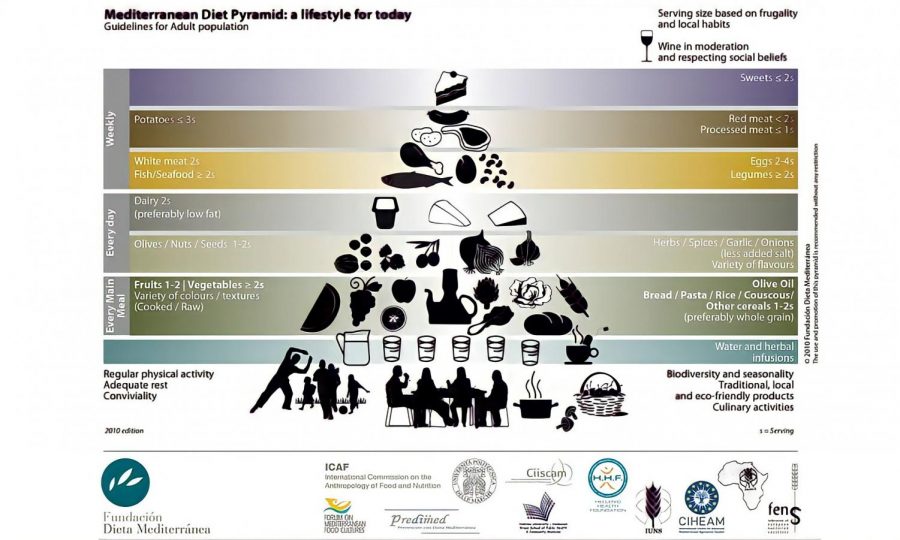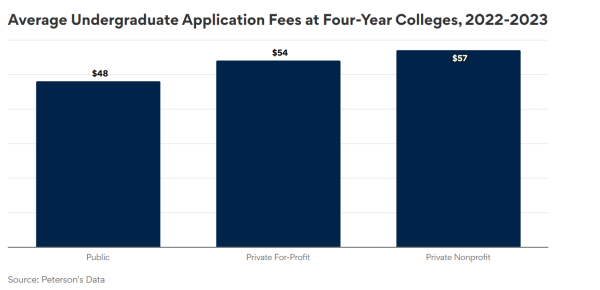Diet affects mental health
Photo used with permission from Google Commons
Eating a Mediterranean diet decreased the risk of depression by 25% to 35% compared to eating a Western diet, which is high in processed and refined foods and sugars.
Mental illness rates are steadily increasing worldwide. Most commonly known mental illnesses include anxiety disorders, obsessive compulsive disorders (OCD), eating disorders and depression. According to the National Institute of Health (NIH), nearly one in five adults in the U.S. live with a mental illness and one in three teens, ages 13 to 18, experience anxiety.
The exact cause of mental illnesses is not known but research proves that a combination of biological, psychological and environmental factors can cause a mental illness. WedMD says some “mental illnesses have been linked to abnormal functioning of nerve cell circuits or pathways that connect particular brain regions.” Other biological factors that can contribute to the development of mental illnesses include genetics, infections, brain injury, substance abuse, prenatal damage and poor nutrition.
Diet is a factor that affects mental health but is not commonly known by the public. Eva Selhub, a former Harvard Medical School instructor and director of the Benson Henry Institute for Mind-Body Medicine at the Massachusetts General Hospital, published an article in Harvard’s Health Blog about the importance of eating good foods. Selhub creates an analogy between an expensive car and the brain. Just as an expensive car needs premium fuel to function its best, our brains need premium foods to function its best. When the expensive car gets low quality fuel, it can be damaging, similar to our brains, which can be damaged from eating bad foods.
So just how does food affect our mental health? Serotonin is an important hormone that affects the whole body. It “stabilizes our mood, feelings of well-being, and happiness” and “helps with sleeping, eating, and digestion,” according to Hormone Health Network. Healthline.com says serotonin is made up of “an essential amino acid tryptophan,” which only enters the body when it is consumed. 90% to 95% of serotonin is produced by the gastrointestinal tract and is highly influenced by the good bacteria that make up the intestinal microbiome according to Harvard Health Publishing. The body is all connected. The gut microbiome sends messages to the central nervous system, CNS, which communicates to the brain. When there is not enough good bacteria in the gastrointestinal tract, the body is prone to inflammations that results in releases of different neurotransmitters and proteins that trigger brain functions and leads to anxiety, depression and memory loss. NIH says that “patients who struggle with mental health and depression were found to have gut microbiome imbalance” and human and animal studies of probiotics show a decrease of anxiety and depressive symptoms. By eating a healthy, nutritious and probiotic diet, the gut microbiome is balanced, which ultimately can help decrease depression and anxiety.
Selhub states studies have shown a 25% to 35% lower risk of depression in people who eat a traditional diet, like the Mediterranean diet and traditional Japanese diet, compared to people who eat a Western diet. This is because “traditional diets tend to be high in vegetables, fruits, unprocessed grains, and fish and seafood, and to contain only modest amounts of lean meats and dairy,” while Western diets are high in processed and refined foods and sugars.
Senior Sharon Oh did not know how diet affects mental health until she took Honors Nutrition with Kristen Daugherity. “I only learned this year that our gut microbiome can affect mental health and cause depression or anxiety. I thought mental illnesses were just chemical imbalances in our brain but now that I know this information, I have been trying to eat a healthy, probiotic diet,” Oh said.
While there is no concrete evidence that states the gut microbiome causes mental illness, there is a correlation and fixing the diet and balancing out the gut microbiomes could be a solution to some people or even one step to improve mental health.
Your donation will support the student journalists of Thomas S. Wootton High School. Your contribution will allow us to purchase equipment and cover our annual website hosting costs.
Helena Hong is a 2021 graduate.







![Editors-in-Chief Ahmed Ibrahim, Helen Manolis, Cameron Cowen, Alex Grainger, Emory Scofield, Hayley Gottesman, Rebekah Buchman and Marley Hoffman create the first print magazine of the year during the October press days. “Only a quarter of the schools in MCPS have programs that are like ours, a thriving, robust program. That makes me really sad. This is not just good for [the student journalists] to be doing this, it’s good for the entire community. What [student journalists] provide to the community is a faith in journalism and that continues for their lifetimes," Starr said.](https://woottoncommonsense.com/wp-content/uploads/2025/10/wmpoFTZkCPiVA3YXA4tnGoSsZ4KmnKYBIfr18p3l-450x600.jpg)